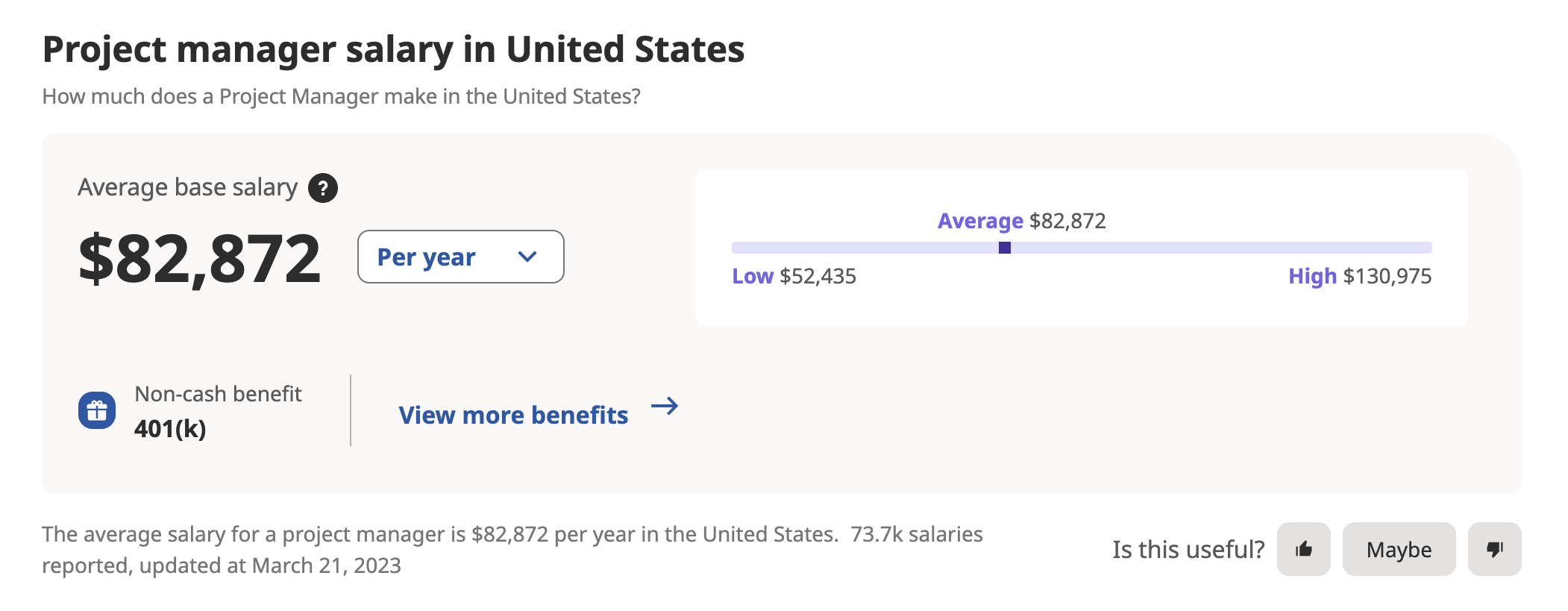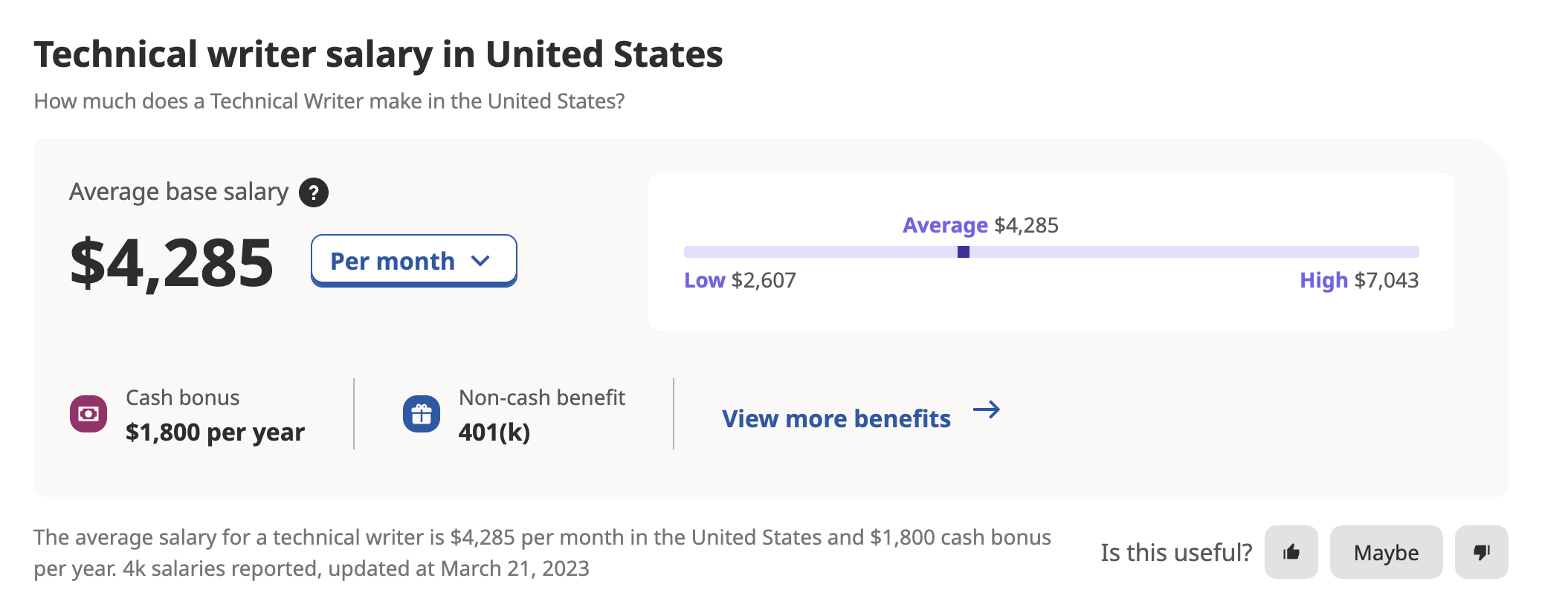5 Well-Paying Tech Careers That Don't Require Coding Skills
Getting a non-coding tech job can be a fantastic opportunity for those who have an interest in technology but don't necessarily have a background in coding. There is a wide range of non-coding tech roles available that offer exciting career paths and excellent earning potential. One of the

Getting a non-coding tech job can be a fantastic opportunity for those who have an interest in technology but don't necessarily have a background in coding. There is a wide range of non-coding tech roles available that offer exciting career paths and excellent earning potential.
One of the benefits of a non-coding tech job is the diversity of opportunities available. From project management to user experience design, technical writing, marketing, and sales, there are countless roles in the tech industry that don't require coding skills. This means that even if you're not a fan of coding, you can still have a fulfilling career in the tech sector.
Another great advantage of non-coding tech jobs is the high demand for skilled professionals in the industry. With the continued growth of technology and digital transformation across all industries, companies need individuals with technical expertise to help them navigate these changes. This means that non-coding tech jobs are often in high demand, and can offer great job security and growth potential.
In addition, non-coding tech jobs can also offer competitive salaries and benefits packages. As the tech industry continues to boom, companies are willing to pay top dollar for skilled professionals who can help them stay ahead of the curve.
Ultimately, getting a non-coding tech job can be an excellent opportunity for those with an interest in technology to pursue a rewarding and fulfilling career. With so many diverse roles available, excellent earning potential, and high demand for skilled professionals, it's no wonder that more and more people are considering non-coding tech careers.
Here are Five Non-Coding Tech Careers With Good Salary
1. Data Analyst

A data analyst is a professional who collects, processes and performs statistical analysis on large sets of data to help organizations make informed decisions. They use specialized software tools and techniques to identify patterns and trends within data and provide insights that can be used to improve business operations or outcomes.
In simpler terms, a data analyst is like a detective who sifts through large amounts of information to uncover important insights. They work with various types of data such as customer information, financial data, or operational metrics, and use statistical techniques to analyse this data and identify trends or patterns. The insights they provide can be used to make important business decisions or to optimize processes for better outcomes.
Requirements:
- Understanding of statistics
- Familiarity with Econometrics
- Proficiency in statistical software such as SPSS, SAS, and MS Excel for data analysis
- Knowledge of data models and mining techniques
- Familiarity with Tableau, ClickView, Qlik, Power BI, and Data Studio
- Experience with platforms like Hadoop and Apache Spark
- Strong mathematical skills
Benefits:
- High demand: Data analysts are in high demand across various industries, meaning there are plenty of job opportunities available.
- Competitive salary: Data analysts typically earn a high salary, reflecting the value they bring to organizations.
- Impactful work: Data analysts contribute to the decision-making process by providing insights and recommendations based on data analysis, which can have a significant impact on an organization's success.
- Career growth: Data analysts often have opportunities for promotions and career advancement, as their skills are highly valued and in demand.
Job Outlook: According to Salary Expert, the average Data Analyst's gross salary in the United States is $102,489 or an equivalent hourly rate of $49. In addition, they earn an average bonus of $4,171. Salary estimates are based on Salary Survey, data collected directly from employers and anonymous employees in the United States. An entry-level Data Analyst (1-3 years of experience) earns an average salary of $72,151. On the other end, a senior-level data analyst (8+ years of experience) earns an average salary of $127,098.
Data analysts will likely continue to be in high demand, with many job opportunities available across various industries.
2. IT Business Analyst

An IT Business Analyst is a person who helps a company use technology effectively to achieve its business goals. They work with both business and technology teams to identify needs, gather information, and translate business requirements into technical specifications. Their role is to ensure that IT systems and solutions are designed and developed to meet the needs of the business and its users. They also provide support during system testing and implementation to ensure that the solution works as intended.
To be a successful IT Business Analyst, you should possess the following skills:
- Analytical and critical thinking: You must be able to analyse complex data and information, and think critically to identify problems and develop effective solutions.
- Communication: As an IT Business Analyst, you must have excellent communication skills, including the ability to listen actively, ask questions, and explain technical concepts to non-technical stakeholders.
- Negotiation skills: You must be able to negotiate with stakeholders and team members to resolve conflicts and reach a consensus on project goals and requirements.
- Familiarity with cost-benefit analysis: You should be familiar with a cost-benefit analysis to help make informed decisions about project investments and prioritize resources.
- Knowledge of databases and SQL: A good understanding of databases and SQL is important for an IT Business Analyst to gather, analyse, and manipulate data for business analysis and reporting.
Benefits: One of the benefits of this profession is the ability to work remotely, allowing for flexibility and work-life balance. As a Business Analyst, you'll work closely with different teams to identify areas for improvement, recommend solutions, and manage project implementations.
Job Outlook: According to Salary Expert, the average IT Business Analyst's gross salary in the United States is $97,265 or an equivalent hourly rate of $47. In addition, they earn an average bonus of $3,813. Salary estimates are based on Salary Survey data collected directly from employers and anonymous employees in the United States. An entry-level IT Business Analyst (1-3 years of experience) earns an average salary of $68,572. On the other end, a senior-level IT Business Analyst (8+ years of experience) earns an average salary of $120,620.
3. Digital Marketing

Digital Marketing is a type of marketing that uses digital channels such as social media, search engines, email, and websites to promote products, services, or brands. It involves various strategies and techniques, such as search engine optimization (SEO), pay-per-click (PPC) advertising, content marketing, social media marketing, and email marketing. The goal of digital marketing is to reach and engage with a target audience, increase brand awareness, drive website traffic, generate leads, and ultimately convert them into customers.
Requirements:
- Basic understanding of web design: A fundamental understanding of web design is important in digital marketing to ensure that the website is user-friendly and optimized for search engines.
- Knowledge of search engines and social media platforms: A good understanding of search engines and social media platforms is necessary to develop effective digital marketing strategies that can reach and engage with target audiences.
- Proficiency in tools such as Google Analytics and related tools: Digital Marketers must have the ability to use analytics tools to measure and analyse the performance of their campaigns, make data-driven decisions, and continuously optimize their strategies.
- Content creation and copywriting: Strong writing and communication skills are essential in digital marketing to create compelling content that resonates with target audiences and drives engagement.
Benefits: Digital marketing jobs offer a great work-life balance, allowing you to enjoy your daily life while working. There are many career opportunities in this field, along with attractive salary packages. Unlike coding jobs, digital marketing jobs are skill-based and do not necessarily require a degree. Instead, acquiring skills and certifications can give you a competitive edge. One of the major advantages of digital marketing jobs is the flexibility they offer in terms of working hours, making it easy to balance work with other commitments.
Job Outlook: According to Indeed, the average salary for a Digital Marketer is $61,643 per year in the United States, while in the United Kingdom, the average salary for a Digital Marketer is £28,157 per year. Digital Marketers earn a lot, most especially those who freelance with their skillset. They tend to always earn higher than an average salary earner.
4. Project Manager

A Project Manager is someone who takes charge of a project and makes sure it gets done. They create a plan, organize the work, and make sure everyone is doing their job. They also make sure the project is finished on time, within the budget, and meets the desired quality.
Requirements:
- Effective communication
- Negotiation
- Risk management
- Time management
- Leadership
- Problem-solving
Benefits:
Being a project manager allows you to enhance your skill set through collaboration with cross-functional teams on every project. This role often comes with a generous salary package.
Job Outlook: According to Indeed, the average salary of a Project Manager in the United States is $82,872 and can be as high as $130,975 for a highly experienced Project Manager. In the United Kingdom, the average salary for a Project Manager is £45,941 per year.

5. Technical Writer

A Technical Writer is someone who creates documents, manuals, guides, and other materials that explain technical information in a way that is easy to understand for non-technical people. They write about complex topics such as software, hardware, and other technical subjects and translate them into simple and understandable language. Technical Writers may work in various industries, such as technology, engineering, or healthcare, and are responsible for creating user-friendly materials that help people use products or services efficiently.
Requirements:
- Strong Writing Skills: Technical Writers must have excellent writing skills and be able to communicate complex technical information in a clear and concise manner.
- Technical Knowledge: Technical Writers must have a deep understanding of the subject matter they are writing about, whether it is software, hardware, or other technical fields.
- Attention to Detail: Technical Writers must pay close attention to detail to ensure that the information they provide is accurate and reliable.
Benefits:
Technical writing is a job that can be done remotely. With the rise of online collaboration tools, remote work has become more common and accessible. This means that technical writers can work with clients or teams from anywhere in the world, providing greater flexibility and opportunities.
Job Outlook: Technical writing can offer a lot of flexibility in terms of working hours and location. According to Indeed, the average salary for a Technical Writer in the United States is about $4,200 per month. In the United Kingdom, the average salary for a Technical Writer is £37,467 per year.

Summary
Technology is constantly evolving, so it's important to stay curious and keep learning new skills and technologies to stay relevant and competitive in the job market.
If you want a career in any of these fields listed in the article, you need the relevant skills and courses to get started. Why not subscribe to Techloy's newsletter to stay informed?





